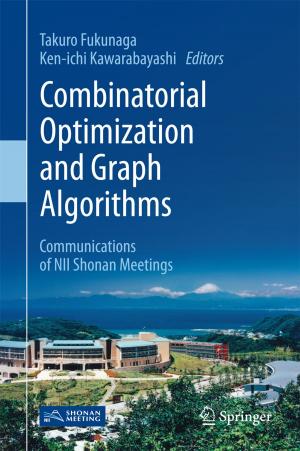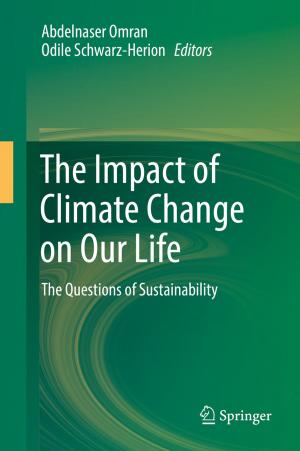Bridging the Communication Gap in Science and Technology
Lessons from India
Nonfiction, Science & Nature, Science, Other Sciences, Study & Teaching, Reference & Language, Language Arts, Communication, Reference| Author: | ISBN: | 9789811010255 | |
| Publisher: | Springer Singapore | Publication: | February 17, 2017 |
| Imprint: | Springer | Language: | English |
| Author: | |
| ISBN: | 9789811010255 |
| Publisher: | Springer Singapore |
| Publication: | February 17, 2017 |
| Imprint: | Springer |
| Language: | English |
This first-of-a-kind volume provides a snapshot of existing science communication policy and practice in India across different S&T sectors, and offers solutions to building effective communication. It provides an understanding on how to avoid societal clashes in situations when science meets the public in these sectors. The editors and contributors argue that effective S&T communication leads not only to a more informed public but also benefits research itself, and in a changing society like India this is a crucial element related to good governance and policy making. In this volume, experienced masters of the craft provide practical solutions to making S&T communication more effective in a vast democracy like India, which has complex issues related to literacy levels, diverse languages, varying political will, reach, and resources. Through, discussions on cases of creating information modules for the public on the Internet, television and radio, social media, as well a
s traditional ways of outreach like people’s science movements, holding popular science events, and fairs, the volume provides highly valuable directions on how developing countries with low resources and complex populations can communicate S&T research to the public and bridge communication gaps.
This volume will interest researchers from science, social science, mass communication and public relations departments, journalists, as well as practitioners and policy makers from government and non-government institutions involved in S&T policy, practice and communication and people who want to understand the complex S&T landscape of India.
This first-of-a-kind volume provides a snapshot of existing science communication policy and practice in India across different S&T sectors, and offers solutions to building effective communication. It provides an understanding on how to avoid societal clashes in situations when science meets the public in these sectors. The editors and contributors argue that effective S&T communication leads not only to a more informed public but also benefits research itself, and in a changing society like India this is a crucial element related to good governance and policy making. In this volume, experienced masters of the craft provide practical solutions to making S&T communication more effective in a vast democracy like India, which has complex issues related to literacy levels, diverse languages, varying political will, reach, and resources. Through, discussions on cases of creating information modules for the public on the Internet, television and radio, social media, as well a
s traditional ways of outreach like people’s science movements, holding popular science events, and fairs, the volume provides highly valuable directions on how developing countries with low resources and complex populations can communicate S&T research to the public and bridge communication gaps.
This volume will interest researchers from science, social science, mass communication and public relations departments, journalists, as well as practitioners and policy makers from government and non-government institutions involved in S&T policy, practice and communication and people who want to understand the complex S&T landscape of India.















